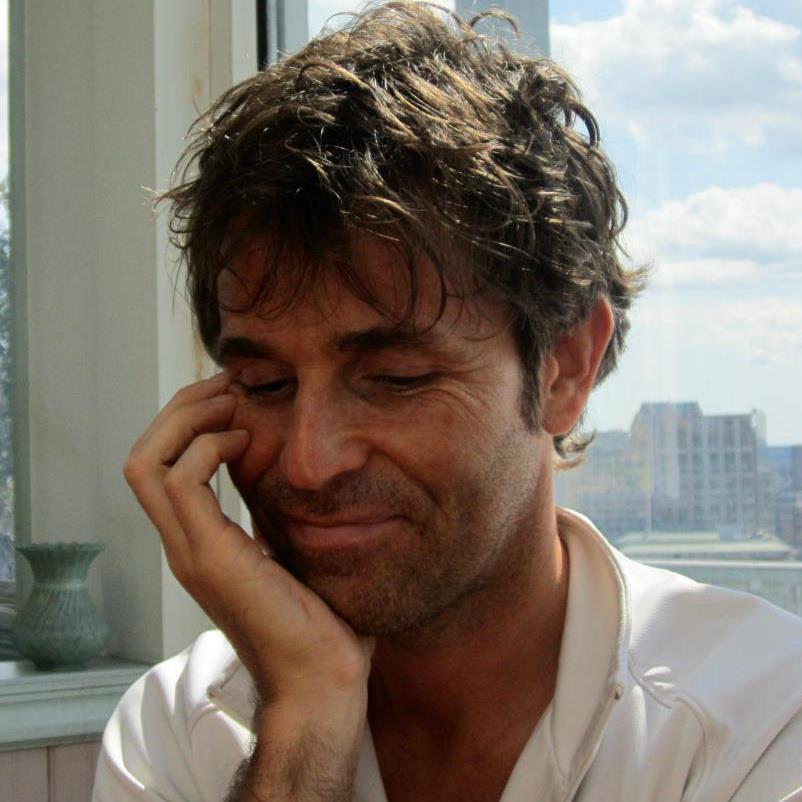About Archie…
“Go to your bosom, knock there, and ask your heart what it doth know.”
– Shakespeare
I came to this work in a roundabout way.
When I was an undergraduate at MIT, I spent most of my time on neurochemistry and literature. While in school, I co-authored a scientific paper that was published in the journal Brain Research. I was a bona fide nerd.
I also played quarterback for the varsity football team, and—after football season was over—acted in school productions. Science and athletics were my passions, but my experience in the theatre changed my life. It was there that I met people who opened new ways of seeing, experiencing, and being in the world. After graduating, I moved to New York City to pursue classical training as an actor.
Theatre gave me an education in things the sciences don’t teach: how to listen closely to people, how to let language move through your body, how to develop tolerance for being with powerful emotional experiences, how to imagine what others’ lives are like. In addition to my training in conservatory, I was fortunate to study privately with several of the most renowned theatre teachers of the last century, including Uta Hagen and Terry Schreiber.
Theatre artists spend a great deal of time studying human behavior and motivation: how and why all of us do what we do. As an actor I studied these things subjectively, which provided me with some of the most valuable training I’ve ever received. After classes and rehearsals, I began to study the human psyche objectively as well, reading extensively and devouring the great psychological theorists: Jung, Freud, Adler, Reich, Binswanger, Boss, Rank, Sullivan, E. Erikson, Bettelheim, Fromm, Goldstein, Lewin, Vygotsky, Horney, Allport, Frankl, Skinner, Rogers, Maslow, May, Gendlin, Piaget, Bandura, Maturana, M. Erickson, Haley, Watzlawick, Satir, Goodman, Perls, Watts, Ackerman, Minuchin, Bowen, White & Epston, Bowlby, Laing, Winnicott, Bion, Fairbairn, Guntrip, Kernberg, Masterson, S. Miller, Stolorow, Hellinger, C. Gilligan, J. Miller, J. Jordan, Von Franz, Neumann, Hillman, P. Berry, Lopez-Pedraza, Guggenbühl-Craig, Yalom, May and many more. These thinkers led me to the great psychological philosophers: Kant, Hegel, Descartes, Pascal, Kierkegaard, Nietzsche, Vaihinger, James, Dewey, Wittgenstein, Buber, Heidegger, Sartre, Merleau-Ponty, Foucault, Bateson, Habermas, Chomsky, Levinas, Rorty, Zizek, & others. My studies in philosophy were further informed by the psychological wisdom of the world’s great spiritual traditions, particularly as laid out in the volumes of the Bhagavad Gita, the work of Lao-tzu & the Taoist sages, Nagarjuna and the Buddhist sages, Ibn Arabi and the Sufi poets, the Christian Gnostics, Swedenborg, and—more recently—scholars and seekers such as Joseph Campbell, Mircea Eliade, Gershom Scholem, Paul Tillich, Thomas Merton, Krishnamurti, Teilhard de Chardin, Ken Wilber, Eknath Easwaran, Thomas Berry, Thich Nhat Hanh, Gandhi, and Martin Luther King, Jr.
Finally, being in the theatre helped me understand Freud’s lament: poets express the most profound human truths before the shrinks every time. The poets who’ve had the greatest influence on me and my work include Shakespeare, Homer, Dante, Blake, Whitman, Neruda, Frost, Yeats, Auden, Eliot, Cavafy, Keats, Rumi, Hafiz, John Berryman, Robert Lowell, Gregory Orr, Donald Hall, William Carlos Williams, Mary Oliver, Jack Gilbert, Jim Harrison, Lucille Clifton, Adrienne Rich, Sharon Olds, Franz Wright, David Whyte, Stanley Kunitz, Allen Ginsberg, Lawrence Ferlinghetti, Gregory Patchen, Robert Bly, e.e. cummings, Sylvia Plath, Ted Hughes, Elizabeth Bishop, Dylan Thomas, and others.
All of these people spent their lives probing deeply into the experience of being human. By my mid-20’s, it was clear to me that I needed to work directly with real human beings, struggling with real human experiences, and asking real human questions. I left the theatre, and returned to Cambridge for graduate school. As soon as my clinical internships began, and I started doing therapy with real people in real situations, it was as if a veil were lifted. Everything fell into place. I sensed ways of helping people change. I had that feeling of: “Oh. Now I understand. Now I know why I’m here.”
Psychotherapy is a calling. It is fundamentally concerned with the most important things in life: love, relationships, family, meaning, connection, change, creativity, responsibility, belonging, joy, gratitude, grace, loss, and more. Working with these enduring concerns day after day is a privilege; there’s nothing I’d rather do. If I won the lottery tomorrow, my schedule wouldn’t change.
In addition to my clinical work, I teach graduate courses in psychotherapy, train practicing psychotherapists, coach executives, and consult to corporations, non-profits, and governments around the world. I’ve taught at the Esalen Institute, the Harvard Business School, the Columbia Graduate School of Business, Cambridge College, and other educational institutions. I’ve consulted with IBM, American Express, General Electric, Time-Warner, KPMG, McKinsey, and many other leading corporations.
In 2001, I was invited to sit on the Advisory Board of the British Gestalt Journal, one of the premiere Gestalt journals in the world. I also serve on the faculties of the Gestalt International Study Center on Cape Cod and the Graduate Program in Holistic Counseling at Salve Regina University in Newport, RI, where I began teaching in 1999. I’ve written a few too many articles and book chapters, presented at professional conferences both here and abroad, and edited two books on Gestalt theory while serving as Editor and Co-Director of GestaltPress—the largest independent publisher of Gestalt books in the US.
